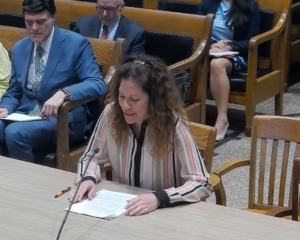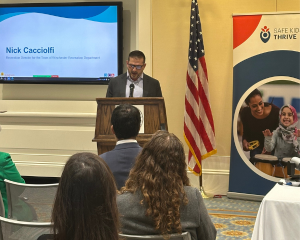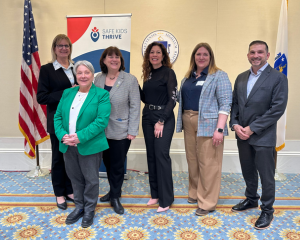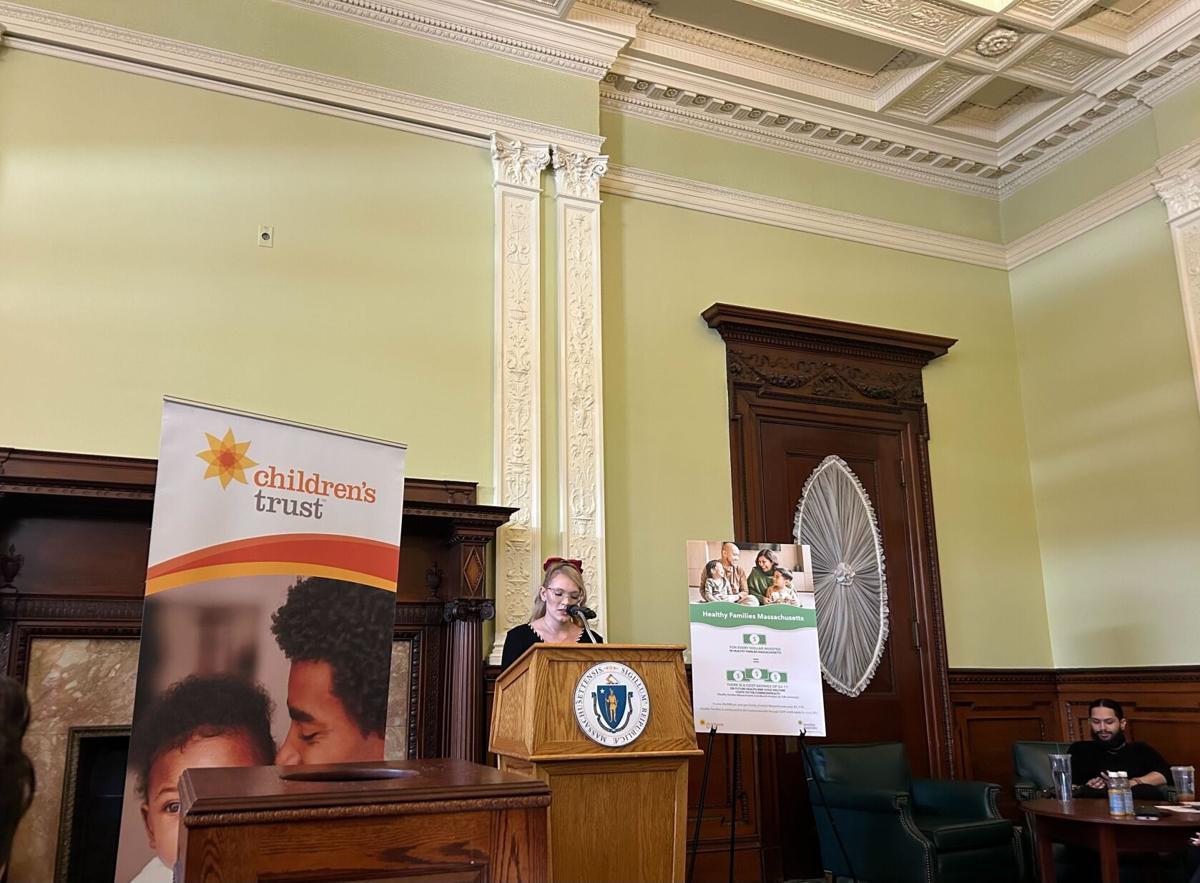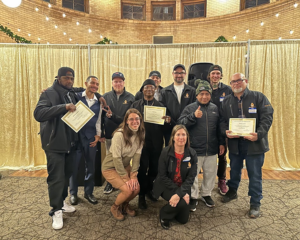Home visiting programs are a cornerstone of preventing child abuse and neglect and supporting families in Massachusetts. These programs provide critical resources for families, ensuring parents have the guidance and support they need to create safe, nurturing environments for their children to thrive.
The Vital Role of Home Visitors in Strengthening Massachusetts Families
However, home visiting programs are facing a significant and growing challenge: high staff turnover. The demanding nature of home visiting, coupled with inadequate compensation, has led to an exodus of highly skilled professionals.
Home visiting programs connect families with trained professionals who provide support through different developmental stages, depending on the specific program. In Massachusetts, more than 6,000 families benefit from these programs. One such program is Healthy Families Massachusetts (HFM), which supports young, first-time parents from pregnancy until their child turns three. HFM is part of the Children’s Trust’s network of programs. While this article focuses on research and studies specific to HFM, the findings and insights are relevant to home visiting programs across the state. These programs do not operate in isolation; rather, they are part of a broader network working together to support families.
The Proven Impact of Home Visiting Programs
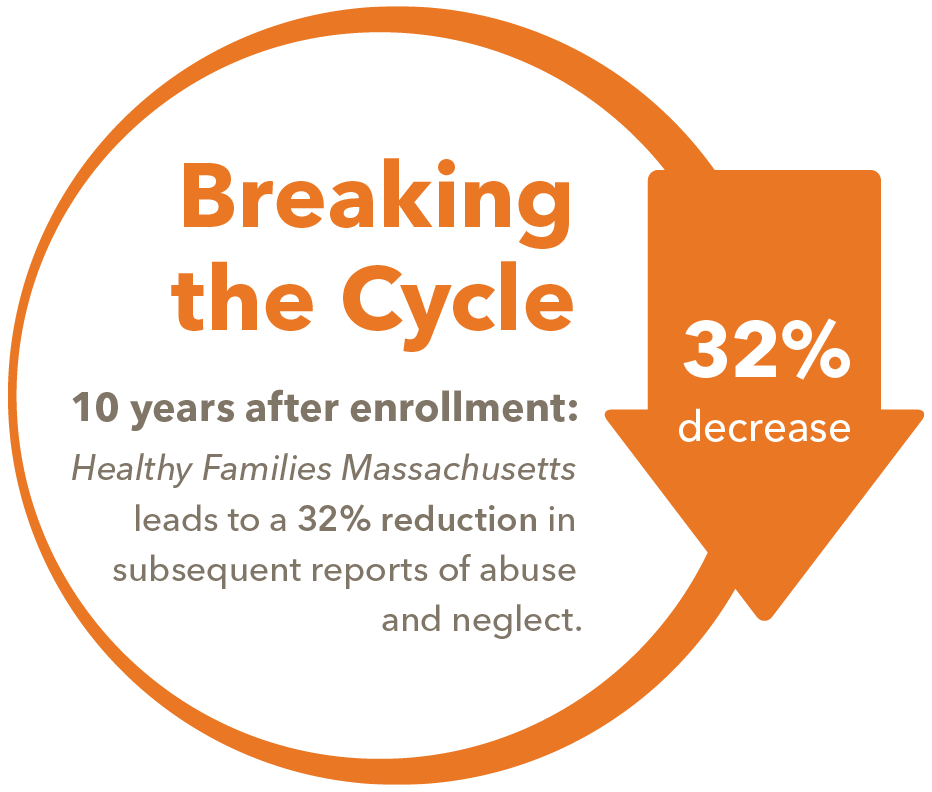
A ten-year randomized controlled trial of HFM conducted by Tufts Interdisciplinary Evaluation Research (TIER) found that participation in the program led to:
- A 36% reduction in parenting stress,a root cause of child abuse and neglect.
- A 32% decrease in subsequent reports of child abuse and neglect.
- Improved economic stability for families through increased parental employment and educational attainment.
- Decreased rates of substance use, homelessness, and reliance on cash assistance, leading to stronger, more resilient families.

These findings reflect a broader trend: investing in home visiting programs leads to meaningful, long-term benefits for families and communities. A cost-benefit analysis from Tufts University determined that for every dollar invested in HFM, the Commonwealth sees a future cost savings of $3.11 related to reduced maternal depression, homelessness, and child maltreatment recurrence.
The Expertise and Dedication of Home Visitors
At the heart of home visiting programs are the highly trained professionals who go above and beyond to support families. Home visitors provide compassionate, tailored support to parents, arming them with the skills, resources, and confidence they need to create nurturing environments for their children. HFM home visitors, who are required to complete 156 hours of training within their first year of hire, offer expertise in child development, mental health, and family dynamics. They help parents navigate the many challenges of early childhood with empathy and knowledge.
But home visitors do more than educate—they become trusted partners in a family’s journey. They form strong, lasting relationships with families, providing stability and consistent support. Their training in child development and family support allows them to offer expert guidance and tailor strategies that meet each family's unique needs. They also connect families with essential community resources and concrete supports, ensuring parents have access to everything they need to thrive. Whether they’re addressing postpartum depression, helping young parents reach their educational and career goals, or guiding families through challenging situations, home visitors are equipped to support a wide range of family needs.
Why Home Visitors Are Leaving
A 2022 study highlighted that HFM staff turnover increased by 10-15% since the start of the pandemic. The main reasons for leaving include:
- Inadequate Compensation – 63% of home visitors earn below the living wage in their county. Many passionate professionals leave reluctantly because their salaries do not support their own family’s financial stability.
- Emotional and Logistical Demands – Home visitors often function as de facto therapists, helping parents navigate sensitive issues such as trauma, mental health, and financial hardship, yet their pay does not reflect the complexity of their work.
- Burnout from Documentation Requirements – Home visitors report that excessive paperwork detracts from the time they can spend directly supporting families.
One former HFM home visitor shared:
“[Leaving] was bittersweet. This is what I always wanted to do. It broke my heart when I had to tell families I was leaving. You build connections with them; some families said ‘I'm not gonna stay in the program if you’re leaving.’ The program was great, I enjoyed my time there. I feel like if the pay was better, I would still be there.”
The reality is that mission-driven work alone is not enough to retain home visitors. While many professionals are deeply committed to supporting families, they cannot afford to remain in positions that do not provide financial stability.
Maintaining a strong and committed workforce ensures program stability and maximizes positive outcomes for families. When families receive consistent, high-quality support, they are more likely to remain engaged and benefit from the program’s full impact.
A Forward-Thinking Approach to Strengthening Families
Investing in home visitors is a forward-thinking strategy that benefits both families and communities. Supporting policies that strengthen home visiting in Massachusetts means expanding access to trusted, research-backed services while reducing costs through preventative support. This requires investing in the dedicated professionals who make a lasting impact on children and families.
Home visiting is a proven, evidence-based way to prevent child abuse and neglect and promote family stability. These programs have already made a significant difference in thousands of families’ lives, and with sustained support, they can reach even more families across Massachusetts.

